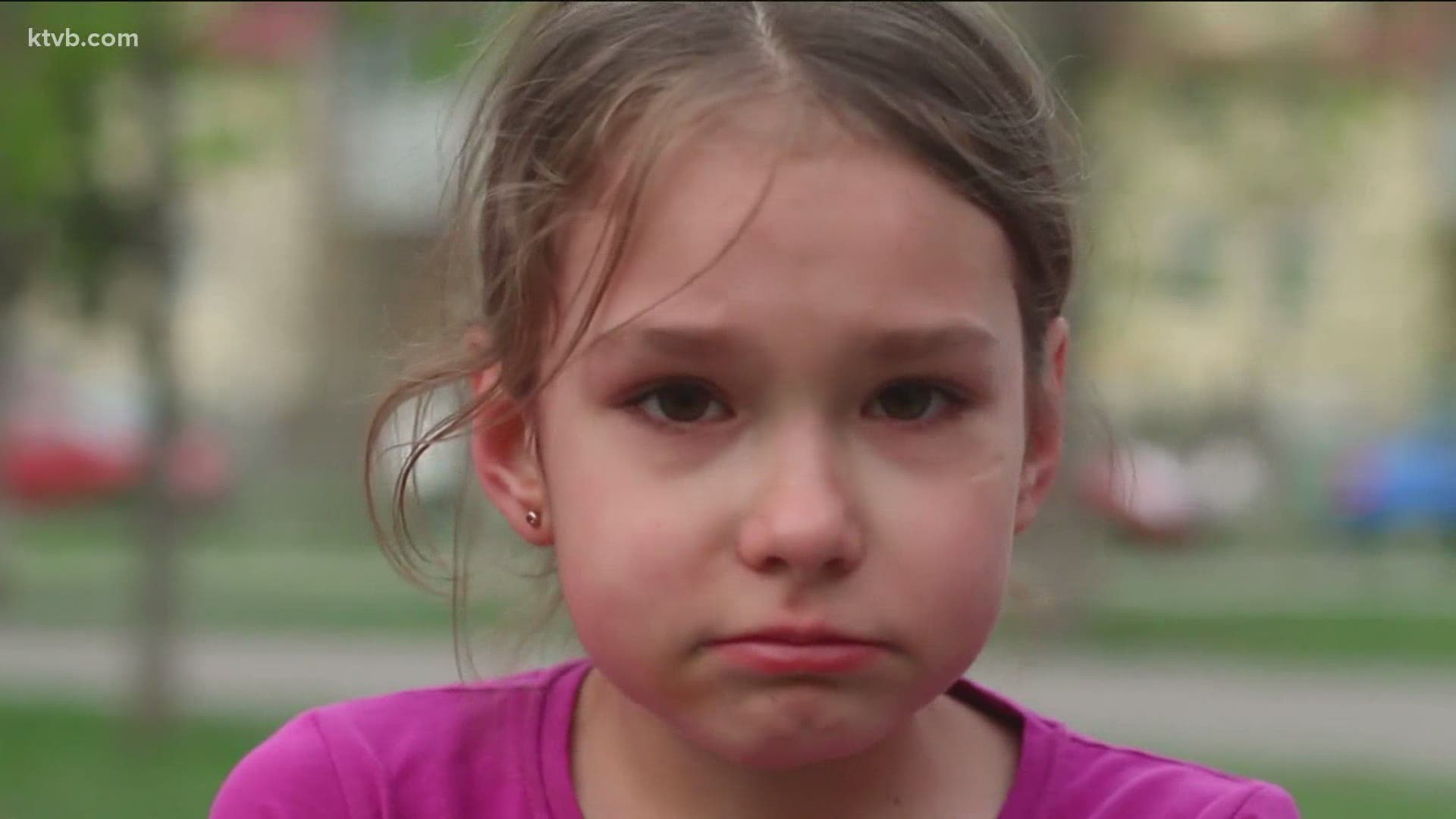BOISE, Idaho — For many Idahoans, the COVID-19 pandemic has shaken up parts of our normal daily routine.
While adults can adapt to breaks in their normal routines, children have a harder time doing so, experts say.
Dr. Dennis Woody, senior clinical consultant for Optum Idaho said routines are very beneficial for a child’s development, and many of those developmental benefits have stripped away from children by the pandemic.
RELATED: Hello Idaho: Tackling increased coronavirus numbers among Hispanics and the rippling impacts
“The restrictions in terms of interactions with other people makes quite a difference in a child’s development and the social relationships that they learn increasingly to depend on as they get older,” Woody added.
It can be difficult to notice behavioral changes in children between the ages of one and three since they don’t have the language skills to express themselves. Parents should pay attention to other nonverbal cues that sinal something has changed with their child.
“Maybe increased agitation, an inability to fall asleep, and a clinginess to the parent,” Woody suggested. “Those are the sorts of indicators that the child’s level of apprehension, fear, or perhaps anxiety that has increased and changed.”
Woody said a parent’s anxiety can also rub off on their children.
“One of the really important things for parents to make sure of is that they need to manage their own anxiety from the pandemic in general, so that they don’t overexpose themselves to unnecessary information about it,” the doctor said. “You want to be well-informed, but you don’t want to be overloaded with it to the point that it makes you very tense, because there’s a person that’s very close to you, perhaps two feet tall, that can read your apprehension.”
From a developmental standpoint, children can massively benefit from a parent giving them more opportunities to approach for nurture, support, and protection, according to Woody.
It can come in the form of a routine activity, like reading a story with a child and making sure that the child has the opportunity to express themselves.
"Even things like familiar sounds and smells of a ‘working household’ can be stabilizing for smaller children,” he said. “As a child gets older it’s very appropriate to ask a three-year-old what they know about this thing called COVID-19. You might not get a very sophisticated answer, but it at least it gives you a clue as to what they’re operating with.”
Giving a child a hug can also go a long way in providing them comfort.
“The knowledge that a big hug is waiting for them is also very comforting,” Woody said. “So the availability of a parent becomes really critical particularly when a child is expressing a need for that sort of activity.”
Watch more 'Hello Idaho':
Watch our latest conversations about mental health in our YouTube playlist:

